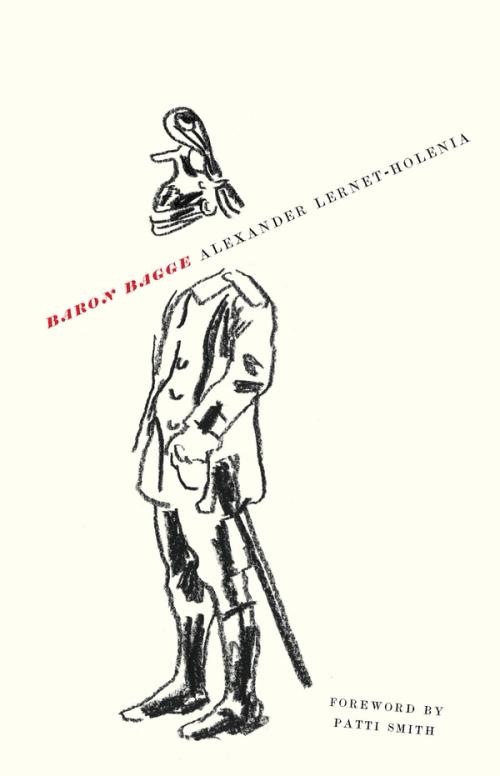The clarity of love is an unassailable thing, if a thing at all, beyond the norms of logic, immune to the proffering of doubt. Turned like an apple on a stick, the limpid mind is spun in translucent sweetness: love hardens, refusing to crack, and the immortal bride haunts the mortal groom.
An account of such devotion arrives via courier, tied in crimson string. I open the packet hastily and place the pages before me—Baron Bagge by the Viennese poet and novelist Alexander Lernet-Holenia—a slim manuscript printed on slightly discolored paper, holding a vague scent of black tea. I know little of the author save that he had served in World War I as a lieutenant in the Austrian Army and was a protégé of the poet Rilke. But I had read his Count Luna—a book so astonishing that I immediately reread it, fearful it might disappear—and I had fleetingly wondered whether Lernet-Holenia could marshal such accelerated powers of imagination in another work.
What foolish qualms. Great writers harbor reserves as rich and varied as the caves of Ali Baba. If Count Luna might be called a perfectly chatoyant moonstone, surely the work before me would prove to be yet another unimaginable gem. For a poet gives us a verse of unspeakable beauty, only to eclipse it with another, or produce several more in swift succession to form a transporting constellation.
Though not lengthy, this novella, superbly translated by Richard and Clara Winston, begs attentive reading. It unfolds panoramically, as Baron Bagge relates his strange history to his second in an aborted duel, an unnamed but sympathetic listener. He tells a soldier’s tale that will twist and couple him forever with the ranks of those in love with the dead.
It is 1915; Lieutenant Bagge has joined the Austro-Hungarian Empire’s Count Gondola Dragoons in a brutal campaign against Russia. Forced to retreat, their division flees across the Carpathians to the Hungarian plain. Receiving new orders, they gather reinforcements and head northward on horseback on a reconnaissance mission, surveying the territory. Under banks of low-hanging clouds and through a vortex of storms, they ride at a dizzying pace in an incessant search for the enemy.
Russian forces are sensed, but not seen. The squadron blazes through morphing landscapes into a twilight fringed with ice, a hypernatural world edging the supernatural. Throughout their maneuvers, Bagge is plagued with an odd queasiness, a burgeoning detachment, a sense that another self is navigating in slow motion.
They at last set up camp in Nagy Mihaly, a village intoxicated by revelry. Bagge negotiates his way within a disquieting air of conspiracy, as if everyone is in on a phenomenal universal joke: he alone stands apart, caught in the fabric of a predestined mirage.
The mystified lieutenant is approached by the wraithlike Charlotte Szent-Királys. Beguiled by her eloquence, blue pallor, and golden hair, he allows himself to be drawn into a swirl of festivities. She is pliant in his arms as they dance, cloaked in ecstatic melancholy. The stars, frightening in their brilliance, shift overhead, reinventing time.
As if candlelight were a doctrine, Alexander Lernet-Holenia writes of the grandeur of illuminated halls, the space between realms, the men tramping through the snow in their long brown coats. He notes the burnished braids adorning a uniform, the edge of Charlotte’s ivory fan etched with a line from Mallarmé: With no language, but a beating of wings toward heaven. He writes of the touch of two hands, of heart chambers entered, one soul pouring into the other.
What happens next does not matter as much as the question that hovers over Baron Bagge like a tantalizing mist: how does one distinguish between so-called life and exquisite illusion?
The crimson string unwinds; the scent of black tea surrounds. Time to turn the page and, as a poet might command, tread softly the marbled corridors of an undying dream.
PATTI SMITH
NYC, May 2022
